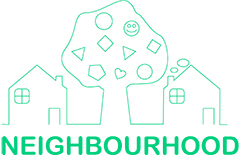ERGO (Ethics and Research Governance Online) is a web-based programme run by the University of Southampton that manages research submissions and applications, and ensures studies take place in accordance with University policies governing:
- Ethics (http://www.southampton.ac.uk/ris/policies/ethics.html);
- Data management (http://www.southampton.ac.uk/library/research/researchdata/);
- Health and Safety (http://www.southampton.ac.uk/healthandsafety);
- Academic Integrity (http://www.calendar.soton.ac.uk/sectionIV/academic-integrity-statement.html).
In order to receive approval from the ERGO committee, we had to submit a set of forms along a pdf version of the Sample Survey Questionnaire:
- The FPSE EC Application Form, which is divided into four sections.
PRE-Study: This section involved questions that describe details of the intended participants of the survey and how they would be approached.
During Study: This section deals with an outline description of the survey questions and the general details of what sort of information would be collected.
Post-Survey: This section deals with how the data would be stored and used and also who all would have access to the collected data.
Study-Characteristics: Finally, this section deals with the overall purpose and characteristics of the survey to understand if the survey was funded by any means, or if any sort of sensitive or personal data is collected that would cause any sort of legal issues in the future, or if the study involves any minors or animals or substances that could cause any risks during the survey. - A consent form which needs to be completed by the participants before filling in the survey. This involves information which makes sure that the participants are fully aware of the purpose and the scope of the survey and also a declaration that they have voluntarily agreed to take part in the survey and are all above the age of 18 (no minors involved).
- A risk assessment form which aims to make sure that if there are risks associated with the study/survey, that they have been addressed properly and risk mitigation steps have been taken appropriately.
Challenges and difficulties:
The initial aim of the survey was to identify and understand how individuals across different age groups and different nationalities interact with their neighbors and what sort of interests and social bondage they possess. But since we could not capture age and nationality information, as those sorts of information contradict ethics guidelines about capturing personal data, we altered the questions to instead best capture information about interactions between individuals, and understand general trends in social communication. Also due to some miscommunication error with the ERGO system to took a week longer to get approval to conduct the survey, which eventually forced us to compromise on the duration and the analysis time allowed for the survey.

